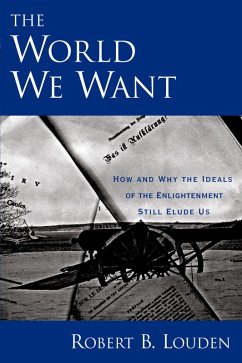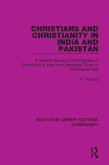The World We Want compares the future world that Enlightenment intellectuals had hoped for with our own world at present. In what respects do the two worlds differ, and why are they so different? To what extent is and isn't our world the world they wanted, and to what extent do we today still want their world? Unlike previous philosophical critiques and defenses of the Enlightenment, the present study focuses extensively on the relevant historical and empirical record first, by examining carefully what kind of future Enlightenment intellectuals actually hoped for; second, by tracking the different legacies of their central ideals over the past two centuries. But in addition to documenting the significant gap that still exists between Enlightenment ideals and current realities, the author also attempts to show why the ideals of the Enlightenment still elude us. What does our own experience tell us about the appropriateness of these ideals? Which Enlightenment ideals do not fit with human nature? Why is meaningful support for these ideals, particularly within the US, so weak at present? Which of the means that Enlightenment intellectuals advocated for realizing their ideals are inefficacious? Which of their ideals have devolved into distorted versions of themselves when attempts have been made to realize them? How and why, after more than two centuries, have we still failed to realize the most significant Enlightenment ideals? In short, what is dead and what is living in these ideals?
Dieser Download kann aus rechtlichen Gründen nur mit Rechnungsadresse in A, B, BG, CY, CZ, D, DK, EW, E, FIN, F, GR, HR, H, IRL, I, LT, L, LR, M, NL, PL, P, R, S, SLO, SK ausgeliefert werden.









